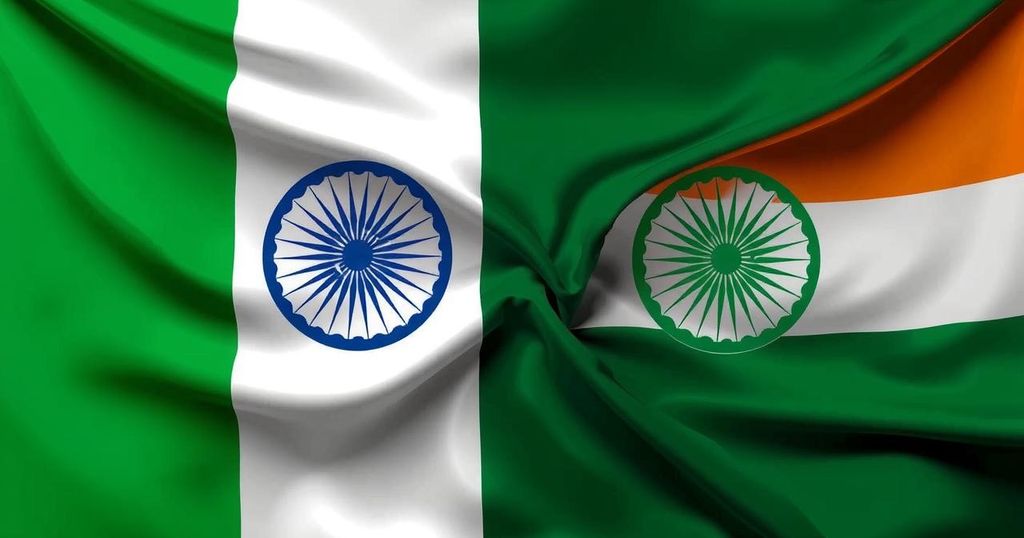Strengthening Ties: India’s Strategic Partnership with Nigeria
Prime Minister Narendra Modi affirmed India’s commitment to enhancing its strategic partnership with Nigeria during his recent visit to Abuja. Discussing various collaborative efforts, including defense and trade, he highlighted the importance of addressing shared challenges such as terrorism and drug trafficking. Notably, he acknowledged the role of the Indian expatriate community and announced humanitarian aid for those affected by floods. The visit marks a new chapter in the longstanding diplomatic relations between the two nations.
During his recent visit to Abuja, Indian Prime Minister Narendra Modi emphasized his government’s commitment to strengthening the strategic partnership with Nigeria across various sectors, including defense, energy, and trade. In discussions with Nigerian President Bola Ahmed Tinubu, PM Modi acknowledged shared challenges such as terrorism, separatism, piracy, and drug trafficking, asserting that both nations would collaborate in addressing these issues. This trip marks the first visit by an Indian prime minister to Nigeria in 17 years, signifying a fresh chapter in diplomatic relations. The Prime Minister highlighted the significance of the approximately 60,000-strong Indian expatriate community in Nigeria, which he described as vital to the bilateral relationship. Furthermore, he announced the provision of 20 tonnes of relief supplies to aid Nigerians impacted by recent floods. Modi also noteworthy mentioned the African Union’s inclusion as a permanent member of the G20 during India’s chairmanship, calling it a significant achievement. Prior to the broader delegation-level discussions, PM Modi and President Tinubu engaged in a private meeting, where they laid the groundwork for future cooperation. Following these talks, both leaders are expected to sign several agreements that will further enhance bilateral ties. This visit is part of Prime Minister Modi’s larger three-nation tour, which includes stops in Brazil and Guyana after Nigeria. India and Nigeria have maintained a close partnership for over sixty years, with diplomatic relations dating back to the establishment of India’s mission in Lagos in 1958, two years before Nigeria’s independence. Moreover, with over 200 Indian companies investing approximately $27 billion in key sectors, India stands as one of Nigeria’s principal development partners, providing both financial support and capacity-building initiatives.
India has cultivated a significant diplomatic relationship with Nigeria, formally establishing ties in 1958. The partnership reached an elevated status of strategic cooperation during Prime Minister Manmohan Singh’s visit in 2007, reflecting a mutual interest in addressing regional and global challenges. The presence of a robust Indian expatriate community in Nigeria, numbering around 60,000, underscores the cultural and economic connections between the two nations. India’s commitment to development assistance and investment further illustrates the importance of this bilateral relationship in addressing common challenges and fostering growth.
In conclusion, Prime Minister Narendra Modi’s visit to Nigeria underscores India’s ongoing dedication to a strategic partnership aimed at tackling shared challenges, enhancing trade, and ensuring the welfare of the Indian expatriate community. The discussions between the two leaders signal a commitment to further bolster cooperation across multiple sectors. As both nations prepare to sign new agreements, the future of India-Nigeria relations appears promising with the potential for significant advancements in various fields.
Original Source: www.ndtv.com




Post Comment